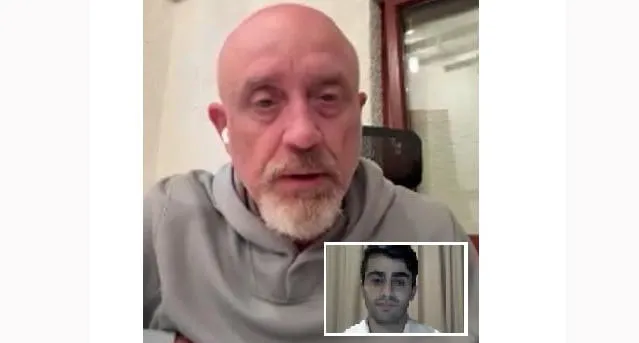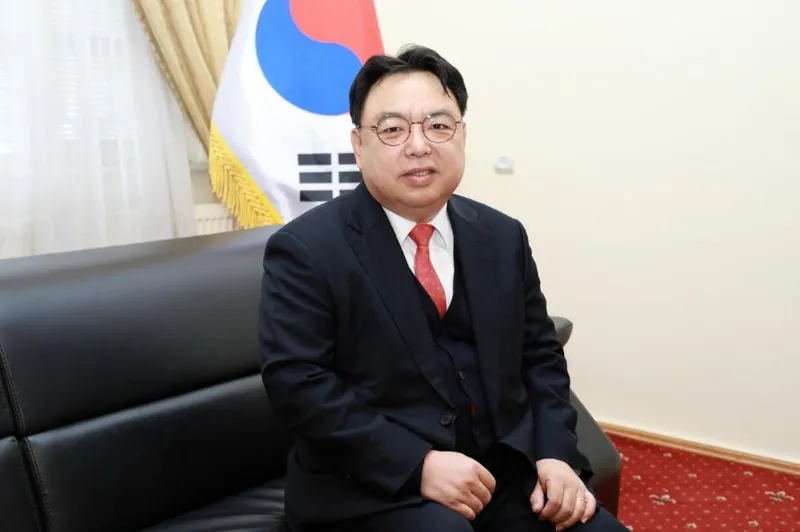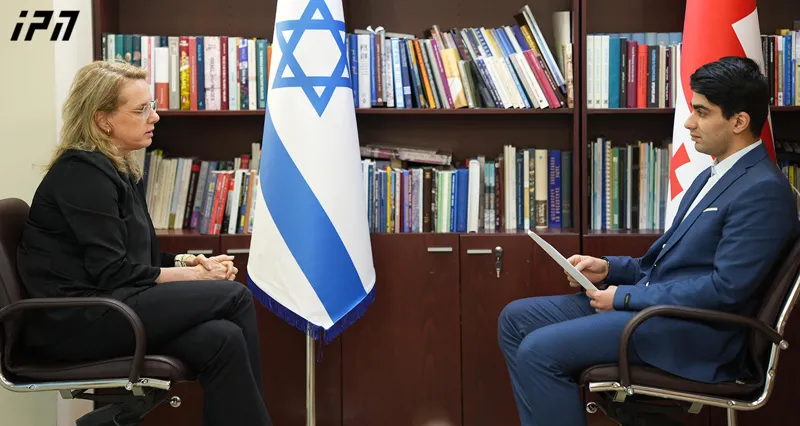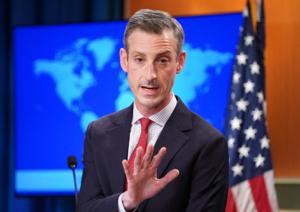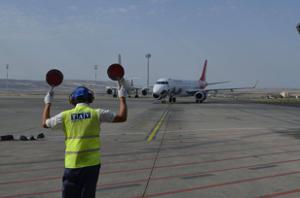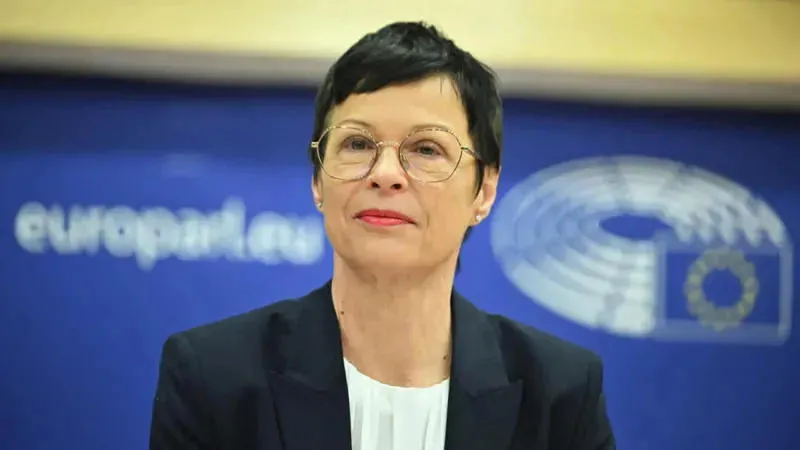
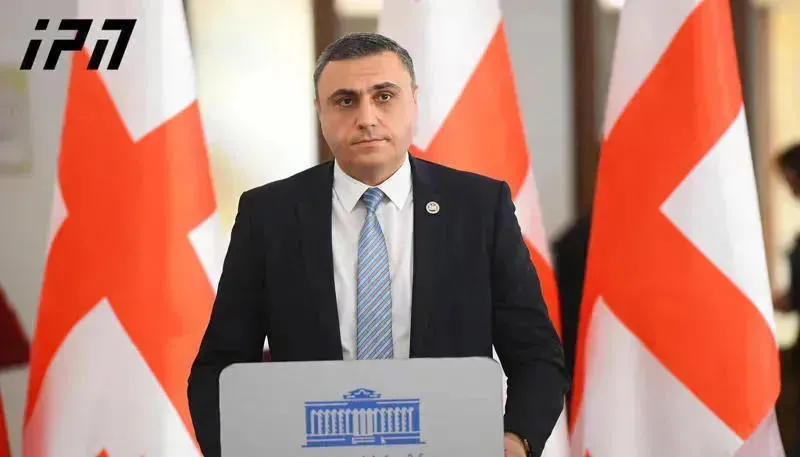
Israel's Ambassador Extraordinary and Plenipotentiary to Georgia, Ran Gidor, has been in Tbilisi for only a few months. Israel is considered one of the most successful countries in the fight against COVID-19, where they are not only trying to prevent the virus, but also to create a vaccine and try to introduce effective treatment. Ran Gidor spoke exclusively to Georgian Journal about the situation in Israel and the research, as well as the assistance to Georgia and the cooperation between the two countries.
- It has been only a few months that you arrived as Ambassador in Georgia. How would you assess this first period of working and living here?
- I arrived in Georgia at the beginning of January. And I had two and a half month of full activity, both - professional and social, cultural. Then, unfortunately, everything had to stop because of the coronavirus epidemic. However, I just a very short period of time my wife and I managed to acquire many many new friends and became addicted to Georgian cuisine. So I hope the normality will return as soon as possible.
- What are Israel’s main achievements in the fight to Covid-19 at this stage, what were the measures taken by the country to detain the infection?
- Just like Georgia, Israeli government reacted sooner, earlier, than most other western government, which contributed to our success, pretty much as here in Georgia. We are also very lucky in that our population is much younger, the average age is much younger than in most European countries. As a result, even though our population is 9.1 million people, we’ve had less than 300 fatalities, and more than 16 000 infections, which is a lot compared to Georgia, but not a lot compared to Europe. The government was very very strict in imposing measures that encourage and sometimes force people to self-isolate. And the measures were a huge success. Also, as of this week we are gradually going back to normal. However, the main point about this experience wasn’t about containing the disease, but about research, scientific and academic research. And in search Israel focused on three main elements: first of all, prevention; secondly, effective treatment and thirdly, developing a vaccine. Now, I will just give two examples for our progress, because Israel is a forefront of international effort to combat COVID-19. One example: the EIB (European Investment Bank) signed an agreement last week with Israeli Innovation authority to give an Israeli research company 50 million euros, in order to produce the kind of research that we are looking for in order to produce the vaccine; at the same time, our world’s biggest crowd funding organization provided 12 million US dollars for an Israeli research institute - MIGAL Galilee Research Institute, which has already developed a vaccine for avian flu, which is a different kind of coronavirus, and now they are trying to adapt this vaccine, which is already successful, to deal with the coronavirus. We also have the wide span institute, we have the Israeli biological institute, we even have the Israeli aircraft industry, all of them adapted the technology in order to develop products, technologies and research that will be shared with the international community, and are designed to combat the spread of COVID-19, and provide effective treatment.
- And, as far as I am concerned, Israel also works on developing the so-called passive vaccine – could you explain further and what are the results so far?
- Well, we haven’t quite achieved it yet, but there are at least three Israeli research institutes, that are well under the way to achieving a vaccine. One of them I mentioned just now, the Migal research institute in the Galilee, which already developed a vaccine for avian flu, which attacks poultry. It’s based largely on placenta or cell-based solutions. But, as regards to what’s the effective solution, we are waiting for the final announcement, but there’s no doubt that out of the 100 universities, laboratories and research institutes around the world, that are trying to develop a vaccination, effective cure, Israel is among the top ten. I would also like to mention, that at the beginning of this week, there was a global summit attended by world leaders, it was initiated by the European Union, and each leader had to announce how much money their government was pledging towards a central pull of money that will used for the research in order to find the cure for corona. So Israeli Prime Minister, Mr. Benjamin Netanyahu announced our contribution of 60 million US dollars. This is our contribution to the global pull. In addition to that, we have the Israeli-based research.
- A lot of European countries, we have seen that their health systems were not ready for this kind of pandemic. So, as far as I’m concerned, in Israeli, the issue linked to equipment is not as big problem, which shields the medical stuff as well…
- When the epidemic first started, we also had our concerns, because we had seen what have happened in Italy, China, Spain, and we were concerned, that our health system simply would not able to cope to the sheer numbers. But in time became evident, that the situation in Israel was much better. As I mentioned before, first of all, our government acted sooner than in other countries; secondly, we have a young population; thirdly, the Israeli public health care system is one of the best in the world. We all pay a very small amount of health tax money every month, and in return, we get the full spectrum of medical services. It’s cheap, it’s fast and it’s effective. So, at the end of the day, when we look backwards and everything that has been happening over the past 3-4 months, less than half of the respirator, ventilator machines actually had to be used, and only a small proportion of the hotel beds, that were made ready for corona patients, were used.
- Of course, both our countries are ready to share the experience. How do you see it can be done and what are the main points you would emphasize should be shared?
- First of all, it’s worth reiterating that from our point of view, Georgia is not just the partner, it’s an intimate ally and during the past couple of months, during the height of the crisis, we had several humanitarian cases, for which we needed the response and assistance from the Georgian authorities, and we got in the most generous forthcoming manner. So this is an opportunity for me, as the Ambassador of Israel, to thank the Georgian government for its unprecedented cooperation. What we can do together – we have already started. We have a division with the Israeli Foreign Ministry, which is called MASHAV. MASHAV is the international development and aid arm of the Israeli government, it’s equivalent to the USAID, or the German GIZ. MASHAV since the 1990’s has already trained over 1 500 Georgian men and women, in many different disciplines – public health, education, entrepreneurship, innovation, women’s empowerment. So MASHAV’s now offering online training seminars from all over the world, including Georgia. But, more than that, MASHAV has been organizing a weekly forum of the most senior public health care officials, from all over the world. These are the people responsible for combating the spread of the disease. And we have three Georgian representatives, who are taking part in this forum on a weekly basis, and benefiting from the lessons and the experience that is shared by Israeli and international experts. On top of that, we manage to include MASHAV in the first group of 15 countries to which Israeli is offering a humanitarian aid, and we have already had a few projects. Finally, we are going to start offering a special training courses for Georgian people as of next week. These will not only focus on COVID-19, but will help us help Georgia to emerge from this economic crisis. For example, next week, we will offer together with GITA (Georgian Innovation and Technology Agency), an online seminar free of charge, on computer coding, introduction to Python.
- You mentioned economy, about which my next question is: how important is it to renew the existing economic cooperation between Georgia and Israel and to intensify the bilateral trade agreements? Does it seem likely to happen anytime soon?
- For us, re-establishing, re-galvanizing bilateral economic relations, bilateral trade, is a number one priority, because in many ways the economic crisis is much worse than the health crisis. Georgia, just like Israel, has been very lucky, there have been very few fatalities, and relatively few infections. However, everyone in Georgia suffered from the economic repercussions of the COVID-19 epidemic. So, first of all, I’m happy to announce, that we are going to inaugurate very soon the Israel-Georgia bilateral Chamber of Commerce. For the first time in almost 30 years, since we established our bilateral diplomatic relations in 1992, there will be a professional, legitimate Chamber of Commerce., that will offer a professional services, including consultancy to business people, enterpreneurs and investors from both countries. It’s very important to stress that this Chamber of Commerce. is endorsed and supported by both our governments and it will fill a gap that has been missing in our bilateral relations for 30 years. Secondly, we know that tourism is very important for Georgian economy. Last year, there were 200 000 Israeli tourists who came to Georgia, it’s the highest number of tourists from any country in the world that wasn’t part of the USSR. If not for the coronavirus, this year there would have had 300 000 tourists. So we are now pushing for the immediate resumption of the direct flights between Israel and Georgia, in order to bring over as many Israeli tourists as possible, and help inject Georgian economy with as much money as is needed.
- Israel recently celebrated its 72nd anniversary of independence. What can you say about this particularly important day for you?
- Yes, we celebrated last week our 72nd anniversary. Israel was established after the WW2 by a generation of refugees and holocaust survivors. Even my own father was a holocaust survivor, who arrived in Israel at the age of 20, with nothing at all. And the fact that 72 years later our Prime Minister can contribute 60 million dollars to the global pull of research against corona, and the fact that our GDP per capita, the level of living, a quality of life is higher than in most of European countries, this is nothing short of a miracle. So, for us, celebrating our independency is the opportunity to take stock of what we have achieved, and I think that in this respect there is a lot of similarity between Georgia and Israel. Both are ancient nations, Georgians and Jews have been living together for 2 600 years, and yet, our states are very new. The modern Georgian state has been in existence for 29 years, the Israeli state has been in existence for 72 years, so we are both old and new, and our challenge is to take what is best from the old tradition and incorporate that with what is best with the new establishment and new traditions. In this respect I think that the potential for our bilateral relations is absolutely limitless.
- There is the mindset that helps the people in Israel to coexist and prosper in a diverse cultural and ethnic environment? In this regard, what can Georgia and Israel learn from each other, mostly, what can Georgia learn?
- Israel is a melting pot of people who arrived from 160 different ethnic background, and together they had to create a new society. Now, only about 75 percent of our population are Jewish, a quarter of our population is not Jewish at all. These are Israeli arms, the majority of them are Muslim and some of them are Christian, we also have Bedouins and other minorities, Circassians, for example. So, we all had to create a common narrative that unites us, it has not been easy, just like many countries, just like Georgia – sometimes they are into ethnic or into religious tensions, but all in all, this melting pot is one of our biggest achievements. As Israeli Ambassador, I’m proud to say that when I look back today I can say that many of my colleagues, Israeli Ambassadors are women, many of them are Arab, both Muslims and Christians, we have a gay diplomats and Ambassadors, we have Ambassadors from all minorities in the country. And in the Israeli Parliament, even in Supreme Court we have Israeli Arab members. So, I’m not saying that this is ideal, we still have a lot to improve, just like Georgia and any other country in the world, but when I look back on our history, I look back with satisfaction.
And Georgia actually is famous for peaceful coexistence. Georgia, throughout the history has been a home not only for Georgian people, but for Azerbaijanis, for Armenians, for Russians, of course, for Jews, for Persians, for Turks. The fact that Georgia has managed to come such a long way since independence, where it is now the candidate to join the EU and NATO suggest that despite all the problems, all in all, Georgia is a success story.
- On the other hand, how would you assess Georgia’s response to Covid-19?
- Well. I think the numbers speak for themselves. The fact that until today less than 10 fatalities, and about 600 infections, is an achievement by all standards. Georgian government received compliments from European governments, from the American governments and even from Israeli government. Recently there was a telephone conversation between the President Salome Zurabishvili and the President of Israel, Reuven Rivlin, and that issue came up and it was acknowledged that Georgian authorities registered success by international standards. We have nothing to do but congratulate you, not on the measures taken by government, but on the level of cooperation and restraint that was exhibited by the population.
Eka Abashidze




